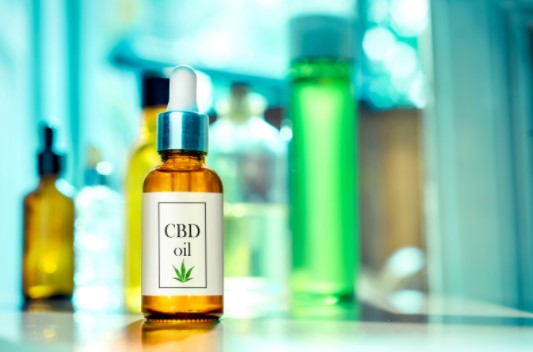Have you been using CBD oil and CD-based products for some time, and felt your psychophysical wellbeing improve? That is not surprising at all, as CBD products have been high on the preferred list of consumers for some time now.
A June 2019 report in Health Europa informs that the CBD market in the UK is growing rapidly enough to reach £1 billion by 2025.
Have you recently felt worried about the legality of CBD in the UK? That is not surprising either. That same report also quotes the Pharmacy Lead of the Centre for Medicinal Cannabis (CMC) to underline the ambiguity of the UK’s law on CBD.
The CMC is a well-known advocacy group that prioritizes patient access to medicinal cannabis. It also supports businesses that make such products available to people.

A False Alarm Bell
BBC News reported on February 13, 2020, that CBD products might disappear from April 1, 2021. That must have sounded an alarm bell for CBD merchants and many people using CBD products for their psychophysical wellbeing.
The Stay Relaxed: CBD is completely legal in the UK
There is no reason why CBD products should disappear. If anything, the government’s attitude towards CBD and other hemp and cannabis-based products is becoming continuously more positive.
CBD: A Conceptual Clarification
Cannabidiol, better known as CBD, is one of the many chemicals present in the cannabis plant. Another chemical present in cannabis plants is tetrahydrocannabinol or THC. THC has psychoactive properties, but CBD does not.
Cannabis plants have many varieties, one of which is Cannabis Indica. This variety has a high presence of THC. This is illegal in the UK under the Misuse of Drugs Act (MDA) 1971. Its botanical cousin Cannabis Sativa L is not.
The more common name for Cannabis Sativa L is hemp or industrial hemp. Growing hemp was declared legal in the UK in 1993. Hemp farmers have to get a license from the Home Office.
Why this difference? Because hemp contains high levels of CBD, and very little THC So, hemp does not have the psychoactive properties of the other variety of cannabis. Rather, it is rich in the medicinal properties of CBD.

CBD: The Legal Scenario
The Drug Licensing Factsheet – Cannabis, CBD, and other cannabinoids issued by the UK Home Office in 2019 outline the following:
- It is legal to cultivate hemp in the UK under a Home Office license, as long as the seeds contain no higher than 0.2% THC. Only the stems and the seeds can be used, however. It is illegal to use the leaves and flowers of hemp plants.
- It is also legal to import hemp seeds not containing more than 0.2% THC for sowing. With authorization from the Home Office, however.
- From November 1, 2018, ‘cannabis-based products for medicinal use in humans’ (CBPMs) were placed in Part 2 of the Misuse of Drugs Regulation (MDR) 2001. The implication is that cannabis/hemp-based items listed as CBPMs no longer need a license from the Home Office.
This applies to England, Wales, and Scotland.
- A CBPM is legal even if it contains higher than 0.2% THC, provided it satisfies the definition of CBPMs.
- CBD by itself in its pure form is not a controlled substance under the MDA 1971 and MDR 2001. CBD-based products, however, would fall under controlled substances if they exceed the THC level of 0.2%.
- There is nothing illegal about selling CBD oil and other CBD-based products, as long as the labels don’t make any health claims. The THC level cannot exceed 0.2%, of course. You can also buy CBD products online and one of the best shops is CBD Mania.
- Smoking cannabis or hemp remains illegal in the UK. Any recreational use of cannabis is a legal offense.

What The Food Standards Agency (FSA) Says
An order from the FSA formed the basis of BBC’s alarming announcement on February 13, 2020. The FSA has issued a deadline of March 31, 2021, for the CBD industry to submit applications for authorization as a novel food.
In legal terms, any consumable item that did not have wide use before May 1997 qualifies as a novel food. Consumable items categorized as novel foods need authorization by the FSA. This is to ensure that any novel food hitting the market is safe for consumers.
The FSA’s ultimatum bases itself on the fact that many consumable CBD products are available in the market without proper novel food authorization. Also, random checks have revealed that some products contain THC beyond the permitted level of 0.2%.
On September 24, 2020, the FSA issued a guidance document that clarifies the following points:
- Cold-pressed CBD oil does not need any novel food authorization because there is evidence of its use before May 1997.
- CBD extracts and isolates, however, do need novel food authorization. A January 2019 order has placed these items in the novel foods catalog.
- Such products currently available in the UK market do not have authorization from the FSA. Securing such authorization is necessary for regulatory compliance.
- The producer of a CBD extract or isolate can apply for authorization via the designated electronic portal. There is no fee for this application. A supplier or a trade body can also apply.

What This Complicated Legal Scenario Means For The Consumer
Nothing is changing for the consumers. Rather, the government is keen to make CBD-based.consumables safe for the users.
If CBD oil is a part of your regular diet, nothing changes at all, because CBD oil is not in the list of the novel foods catalog. The FSA notification does not anyway apply to the use of CBD oil for non-edible purposes. In personal care products, for example.
Other CBD-based food products need to secure FSA authorization by March 31, 2021. This is good news for consumers. Such authorization means that the FSA is satisfied with the toxicological studies conducted. It is a guarantee that the item is safe for consumption. \
As of now, you should follow the FSA’s consumption guidelines:
- The FSA recommends that healthy adults keep their CBD consumption within 70 mg per day. That equals to 28 drops of 5% CBD.
- Pregnant women and lactating mothers should not consume CBD, the FSA advises.
- Anyone under any regular medication should not consume CBD without medical consultation.
As a consumer, expect to see the FSA authorization stamp on non-oil CBD products from April 1, 2021. Nothing else changes.































